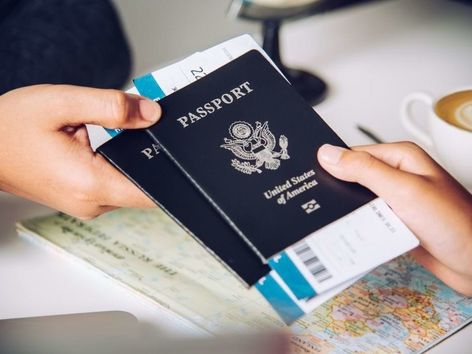Key Considerations for Expatriates Moving to India for Work

India is becoming an increasingly popular country for foreigners who want to work in emerging markets. Over the past decade, India's rapidly developing infrastructure, industry, and services have opened up to foreign investment. Learn more about the benefits of moving to India, how to apply for a work visa, and other important considerations for expats
India is home to many migrants, as the country has a low cost of living and a rapidly growing economy. Also, in recent decades, the country's infrastructure, service sector, and industry have been actively developing. These factors contribute to the employment of expats. Most foreigners work in the IT, engineering, manufacturing, oil industry, banking and tourism sectors. In addition, India is already a real center of multinational corporations. Increasingly, large international companies open branches or representative offices in the country and send their employees there to work.
In addition to career prospects, India is a real holiday country that combines a large number of people, aromas and tastes. Most expats say that living and working in India gave them unforgettable experiences and good memories.
What should you know before moving to India for work? The key rules for foreigners are below.
Work visa to India: how to issue?
Foreign nationals who plan to work in India must apply for an employment visa ('E' visa). For this, it is necessary to contact the Indian embassy or consulate in the country of origin. A regular work visa is issued for 1 year or for the duration of your contract with the employer (up to 5 years).
One of the key conditions is that the expat's salary must exceed $25,000 per year.
Approximate list of documents for obtaining a work permit in India:
- Letter of invitation from the host Indian company.
- A cover letter from a foreign company.
- Employment contract and income certificate.
- Certificate of incorporation from the host Indian company.
- Certificates of educational qualifications and professional knowledge of the applicant.
- Valid passport with two blank pages and six months validity.
- Completed visa application form.
- Passport photo.
- Proof of address, such as a driver's license or utility bill.
- Detailed resume or autobiography.
No change of employer is permitted during the period of validity of the work visa, except for changes of place of employment between registered holding companies, joint ventures or subsidiaries.
After relocation, an expatriate coming to India on a work and business visa must register with the Foreigners Regional Registration Office (FRRO).
Salary level in India for expats
The high minimum wage threshold set by the Indian government at over $25,000 (salary and allowances) per year for foreigners seeking employment visas in India effectively provides expats with jobs in managerial and highly skilled positions.
However, this rule does not apply to language teachers, translators, cooks, embassy staff and scientists in central higher education institutions.
The average salary in India is $12,000-$15,000 per year.
Tax system in India for expats
Expatriates planning to work in India should research the different types of residency status in the country that will determine their tax liability. Foreign nationals working in India are taxed on their global income if they obtain ROR (permanent resident) status.
The tax year in India runs from April 1 to March 31 of the following year. Foreign employees must submit tax returns; the income year is the previous year and the reporting year is the assessment year. Tax returns must be submitted by July 31 after the end of the fiscal year.
Individuals are taxed on income from one or more of the following sources:
- Salary.
- Income from real estate.
- Profits from business or professional activity.
- Capital gain.
- Income from other sources.
Income from each source is calculated separately. The net result of all sources is added to arrive at the total gross income.
If a foreign national receives a salary from his Indian employer, then the latter will deduct taxes from the salary.
Foreigners working in Indian companies must also pay the Employees Provident Fund - a social contribution of 12% of the basic salary.
Bank account in India for foreigners
If you plan to live and work in India, you will need to open a bank account. One of the main advantages of using an international bank account is that you can easily convert your country's currency into Indian Rupees at a good exchange rate.
Different types of bank accounts are available for foreigners in India, including:
- Ordinary accounts for non-residents are current accounts intended for short-term stay (up to 6 months). They usually require you to have at least $500 in deposits per month.
- Foreign Non-Resident – These accounts are great if you don't want to make monthly deposits. But they usually require a large amount when opening an account. Most of them take the form of savings or current accounts.
- Permanent current accounts - have fewer withdrawal limits but offer little or no interest on deposits.
- Savings accounts – in contrast, they offer higher interest rates but allow a limited number of withdrawals each month (or may have higher limits for better rates).
Approximate list of documents for opening a bank account:
- Proof of identity – this can be your travel document (for example, a passport).
- Address confirmation - for example, a rental agreement.
- Proof of your right to be in India - usually your visa and residence permit.
Many international banks operate in India: HSBC, Barclays, Deustche Bank, Royal Bank of Scotland and Citibank.
Importantly! An expat moving to India for permanent residence and planning to work in the country needs to get a PAN number and an Aadhar card. These two documents are necessary when opening bank accounts or carrying out any financial transactions.
Work culture and business etiquette in India
People in India work more than in many other countries of the world. A full working week in India is 47.7 hours, compared to the world average of 43.9 hours per week.
Despite the fact that for quite a long time women have held leadership positions in the Indian Parliament, there are still not many of them working in Indian corporations.
Great importance is attached to building relationships in business and negotiations, in particular during the interview you are often asked about your family, hobbies and personal life in general.
English is the "business language" of India.
The business etiquette of the country is a combination of Western and Eastern practices, but it is important for an expat to learn local customs as well.
Security level in India
The overall level of security in India varies. As a general rule, expats do not encounter violent crime, but they should beware of petty crime, pickpocketing and petty fraud. Women should be careful when traveling alone, especially at night.
There is also a threat of terrorism in India, so citizen checks are often conducted in the country's major cities, especially in government buildings, hotels, sports facilities, shopping centers and transport hubs.
Education system
Most expatriate families send their children to private or international schools. The curricula, environments, teaching philosophies, and fees at these institutions vary greatly, and parents should choose a school that fits their budget and expectations.
International tuition fees are among the most expensive, so international workers should ensure they have a substantial allowance in their employment package to compensate for this.
The level of development of the healthcare industry
Due to lack of equipment, funds, staff and overcrowding in public hospitals, locals and foreigners usually opt for private treatment. There are many private and multi-specialty hospitals in India, especially in urban centers, that are staffed by well-trained English-speaking doctors and nurses.
All expats moving to India should ensure that they have an appropriate health insurance policy.
Advantages of moving to India
1. Reasonable cost of living - housing and food prices are quite affordable.
2. Diversity of nationalities and cultures.
3. Rich in history and culture, it is one of the oldest civilizations dating back to 5000 BC.
4. Excellent quality of Internet and television.
5. Inexpensive services - repairing a computer, car or household appliances is quite reasonable.
Disadvantages of living in India
1. Features of the climate - India is one of the most humid countries in the world.
2. The average level of crime.
3. Difficulty driving (traffic in India is very busy, local drivers often violate traffic rules).
4. Polluted densely populated areas.
5. The working week is longer than in most countries of the world. Expats work an average of 4 hours more than in their country of origin.
Where is the best place to live as an expat in India?
Mumbai, the country's financial center, is a popular base for multinational corporations, but foreign firms are expanding their presence in lower-cost cities such as Hyderabad, Chennai and Pune. All of them have a developed education system, service sector and industrial base.
Top most expensive cities for expats to live in India by link.
Moving to another country can be a daunting task, but we hope that our quick guide will help you understand the main issues that arise when moving to India.
Daria Rogova, Head of Insurance at Visit World
To move, travel or work safely in a new country, you will need health insurance. You can apply for an extended policy on our website here.
Products from Visit World for a comfortable trip:
Checklist for obtaining a visa and necessary documents in India;
Legal advice on immigration in India;
Travel insurance for foreigners in India;
Medical insurance around the world.
We monitor the accuracy and relevance of our information. Therefore, if you see any error or discrepancy, please write to our hotline.
Recommended articles
3 min
Work
Rules for registering with Arbeitsagentur: peculiarities of employment in Germany
Germany is a country with the most powerful economy in Europe, which directly affects the standard of living of its population. That is why many labor migrants seek to move and find work in this country. Germany does not close itself off from the flow of workers, as France and Britain do, but rather actively attracts foreign workers. Learn more about the employment procedure in Germany and the rules for registering with the Arbeitsagentur
07 Jan. 2024
More details3 min
Travels
The most popular destinations in Europe in 2024: AI ranking
In 2024, new prospects for the development of various regions in Europe are opening up, including Piedmont (Italy), New Aquitaine (France), and East Anglia (UK). According to AI, these destinations have the potential to become leaders in the travel industry. Learn more about the features of AI's ranking of the most popular destinations in Europe in 2024
08 Jan. 2024
More details3 min
Residence permit
Berlin has launched a new online application form for citizenship: what is known
A historic stage in the field of migration and citizenship acquisition has begun in Berlin. Germany is introducing a new, convenient and innovative online form for applying for citizenship. This solution is intended to facilitate the citizenship process and make it more accessible to residents. Learn more about the new changes in German citizenship
09 Jan. 2024
More details2 min
Popular
Japan earthquake: the number of victims and how to protect yourself
A massive earthquake has hit Japan, destroying buildings and sparking fires. This natural disaster is recognized as the most powerful in the country in recent years. Find out more about the earthquake's impact, casualties, and safety tips
09 Jan. 2024
More detailsAll materials and articles are owned by VisitWorld.Today and are protected by international intellectual property regulations. When using materials, approval from VisitWorld.Today is required.
